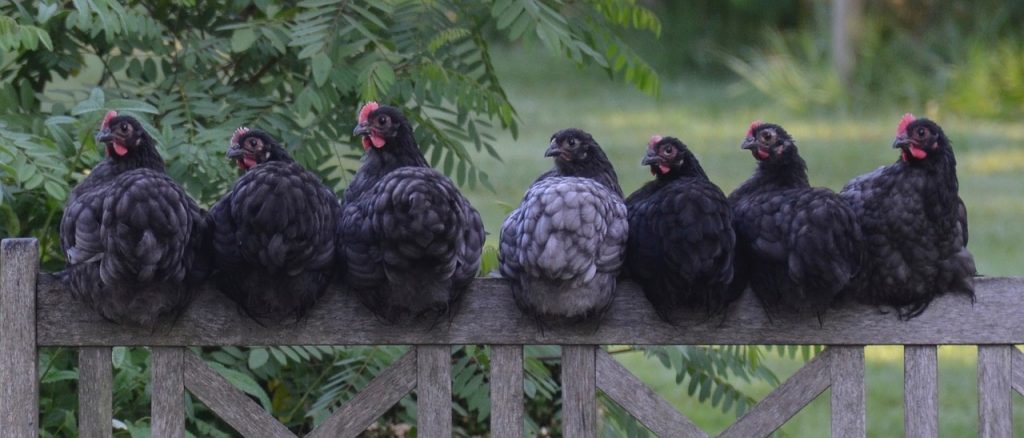Since ducks, swans, and penguins can swim, some people would assume that it means chickens can swim, too. After all, they have roughly the same shape of feet, are relatively light, and can probably balance themselves the way ducks do on the water, right?
That’s… not totally wrong. In reality, chickens can swim even though they aren’t meant for a watery habitat. But just because they can swim doesn’t mean you should force them to. After all, humans can swim just as well, but you wouldn’t force yourself to live in the water just because you could.
Swimming Is a Survival Instinct
Swimming has become a recreational activity for humans. So much so that we forget that swimming is actually once a survival instinct that many animals (not just humans) needed to learn if they ever found themselves in deep waters that they simply cannot a stand-in.
Let’s take a look at why ducks swim frequently. Ducks have webbed feet designed for swimming, their feathers are waterproof (hence the saying “water off a duck’s back”) because their body secretes oils that repel water, and are actually built to swim right on still water.
Chickens, however, have none of those abilities. What they do have is a buoyant body that can float above the water and a survival instinct to not drown. Take a look at this video of a hen being lowered into a pool.
The hen is capable of staying afloat on water because their body shape is similar to a duck’s buoyant shape. However, its feet aren’t meant for swimming, so you’ll notice that once the hen starts paddling her feet and realizes she’s in deep waters she can’t walk on (and because her feet aren’t webbed, she can’t paddle), she starts swimming, but just enough to get herself out of the water.
Because of their feet, chickens have a slower momentum because they can’t paddle as much water as ducks can. However, it’s clear that they have the innate ability to swim to safety, even though most chickens aren’t raised in conditions where they have to swim in deep water.
The Dangers of Wet Feathers
Ducks’ feathers are waterproof because they have a gland near their tail called the “preen gland” which produces a waterproof oil. Ducks use their bills to spread the oil on their outer feathers to keep it waterproof and insulated from cold temperatures. Without this oil, ducks’ feathers can become easily soaked in water, making their bodies heavier and more difficult to stay afloat.
Chickens have this gland but do not produce as much oil as ducks do, so their feathers are much more vulnerable to water. This makes it even more difficult for them to stay afloat. It becomes dangerous when their whole bodies are soaked; when that happens, they are less buoyant and start to sink and risk drowning from their weight.
That Doesn’t Mean Chickens Hate Water
For your chickens’ safety, the place you keep your chickens should never be in a place with very deep water. However, that doesn’t mean you should keep them away from all bodies of water. Some chickens actually enjoy swimming in shallow water to cool and clean themselves, especially during hot temperatures. However, make sure that they have easy access to land should they ever want to get out of the water.
Chickens and Pools
In a previous article, we discussed how to raise a chicken as a domestic pet. If you want to let it roam free in your backyard, take note that most chickens are smart enough to avoid things that can endanger them, but it’s best to keep a yard free of potential risks while your chicken roams.
One body of water your chicken might find themselves swimming in is your swimming pool. While you might find a lot of videos of swimming pool chickens online, you might be hesitant of letting your chicken swim in a pool filled with chemicals. These chemicals, in certain amounts, are harmless to the human body. But for other animals, the concentration of chemicals in your pool can be harmful or even fatal. A regular chlorinated pool, for example, is toxic for tadpoles and mature frogs because frogs absorb water from through their skin.
With chickens, however, there aren’t enough studies to suggest that chlorinated pool water is toxic for them. However, it’s best to err on the side of caution: if you’re going to let your chicken swim, consider a small inflatable kiddie pool and fill it up with natural water. Fill up the pool at just the right amount so that it can still swim around a bit while still being able to touch the bottom with their feet.
While chickens can swim, it’s not wise to assume they like swimming all the time and place them in an environment similar to those of ducks and swans. They’re pretty much just like humans: they’ll learn how to swim as part of their survival instinct, but their bodies aren’t built to live in the water forever and have to come out of the water as quickly as possible.

